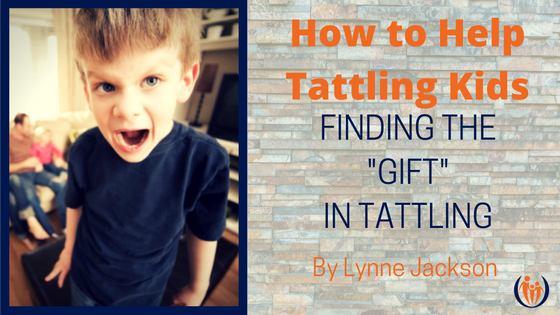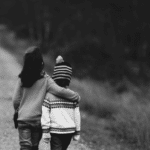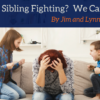
How to Help Tattling Kids
“She called me a name!” “He hit me!” When one child “tells on” another, we call that “tattling.” It can be difficult to confront the kid who feels the need to expose all the other kids’ misbehaviors. Actually, tattling tends to be pretty irritating for all of us. What is the best way to address this issue?
It’s easy to resort to unhelpful responses that keep everyone stuck in the tattling cycle:
- Whether it comes as sympathy or annoyance, the tattling child gets lots of attention.
- The tattled-upon child gets increasingly resentful and determined to pick on their sibling while Mom or Dad isn’t looking.
Instead, we want to share four helpful approaches to tattletale behavior, and how one family succeeded and overcame negative relational patterns.
How can parents engage helpfully with tattling?
How can a parent help the child solve their own problems and let other problems go? Ultimately, tattling can be about a sense of justice. It is important to look at the habit from another point of view. What is beneath the tattling behavior?
1) Embrace different beliefs
- Tattling is a gift-gone-awry that needs guidance. My tattling child clearly has a strong sense of justice and wants resolution to this conflict. (I can be grateful my child is neither passively being victimized or duking it out with her sibling.)
- My child may even have a gift of sensitivity and expressiveness in how they are representing their complaint.
- My child needs to learn problem solving skills. I’ve contributed to this dynamic by solving problems for my kids.
- I can help my kids learn the skills and values to solve their conflict independently, and be responsible for their relationship.
2) Communicate a “course correction” with your kids.
- Affirm the gift.
- “I appreciate that you really want to solve these conflicts and you want things to be fair.”
- “One thing that’s good when you tell me about a problem, is it helps you not resort to hurting your bro/sis to try to solve it!”
- Your relationships are your relationships.
- “When I try to solve your conflicts, one of you ends up feeling I’m being unfair. And what’s more, you grow up thinking someone else has to solve your problems for you.”
- “What’s true is – Your relationships are yours to care for! I’m responsible to teach you the skills you need to do that, but I’m not responsible to manage your relationships.”
3) God’s plan is that people respectfully solve their own conflicts.
- “We all have conflict. It’s part of life. But, the more people get involved the messier it can get. Matthew 18:15 tells us “If your brother or sister sins against you, go to them. Tell them what they did wrong. Keep it between the two of you…’”
- Proverbs 26:17 advises – “Like one who grabs a stray dog by the ears is someone who rushes into a quarrel not their own.”
- You can learn to solve your own conflicts.
- If one or both kids aren’t capable of solving conflicts: “I’ll go with you to help you talk this out. I will ask you questions to help you speak to your sibling. If you start to tell me your side of the story, I’ll remind you to talk to each other, not me.”
- If both kids have capabilities to resolve conflicts: “I’ll ask questions of whoever comes to me, to help you think through how to work this out with your sibling.”
4) Follow through!
In the heat of the moment, help your kids learn “The Peace Process” – lead them to calm down, understand each other and solve their conflict. Then celebrate any small accomplishment or progress.
The impact of equipping kids and helping them take responsibility of their conflict is illustrated by Dustin’s story:
Dustin’s sons were going through a phase of pretty intense conflict, and for months he used the Peace Process to help them learn conflict resolution, all while teaching them that their relationships were their responsibility. He shares his story of guiding a tattling child to reconcile independently:
“My two elementary school aged boys Nate and Ethan* were playing football in the backyard. Nate got mad at Ethan and came to me to tell about it in great detail. Here’s the conversation that followed:
Me: Nate, thank you for telling me all this information, but what you told me doesn’t help Ethan understand that you feel wronged. Nate, look at Ethan (he was still playing football with another friend) and tell me — who has the problem?
Nate: I do. I have the problem and I am mad… and Ethan… he is having fun outside. (That made Nate even more upset!)
Me: I agree. Then tell Ethan the problem.
Nate: See! You don’t care!
Me: Oh no, I do care very much, but I don’t have the problem with you and you don’t have the problem with me.
Nate: Ethan won’t care.
Me: (Smiling) I bet you a chocolate that Ethan will care.
Nate: Okay.
Nate got Ethan’s attention and they walked away to talk privately. Three minutes later I went out and found the boys smiling, arm in arm. Even though I won the bet I tossed Nate a chocolate to emphasize the “win” in this for everyone.
Me: Looks like I owe you a chocolate.
Nate tossed back the chocolate with a HUGE grin.
Nate: No you don’t!
I threw the chocolate back anyway as if to say, “Way to work things out on your own!”
Me: Enjoy the chocolate, boys.
I walked back inside, and the boys ended up having a great day playing together.”
Too good to be true?
At face value this result may seem overly simple, or too good to be true. You might think, “That would never happen with my kids.” A year ago Dustin would have said the same thing! Only recently has he fairly consistently seen his kids quickly shift gears and respectfully solve their own conflict when they tattle.
As he followed through on his belief that the conflict belonged to his boys to solve, he had numerous helpful responses.
- He remained calm and listened carefully, even when Nate was upset.
- He asked questions (“Who has the problem?”) to help Nate realize that he was capable and responsible to resolve his own conflict.
- He connected with Nate in a light-hearted way (betting him a chocolate) that helped Nate feel safe, supported, and then motivated to talk with his brother.
- He celebrated and affirmed the boys’ success by giving them the chocolate anyway.
- As a result, Dustin’s boys have increased confidence in their ability to solve their own conflicts, and a deepened sense that “Dad is for us, not against us.”
These kind of results take time, but that’s what happens when parents persevere with grace and encouragement, as they help kids work toward responsibility for their relationships. We’d love to help your family turn a corner like Dustin’s and many others have.
Take 15 minutes to learn how to give consequences that teach, rather than simply punish, by downloading our free ebook Consequences That Actually Work.






